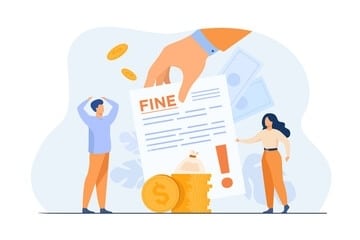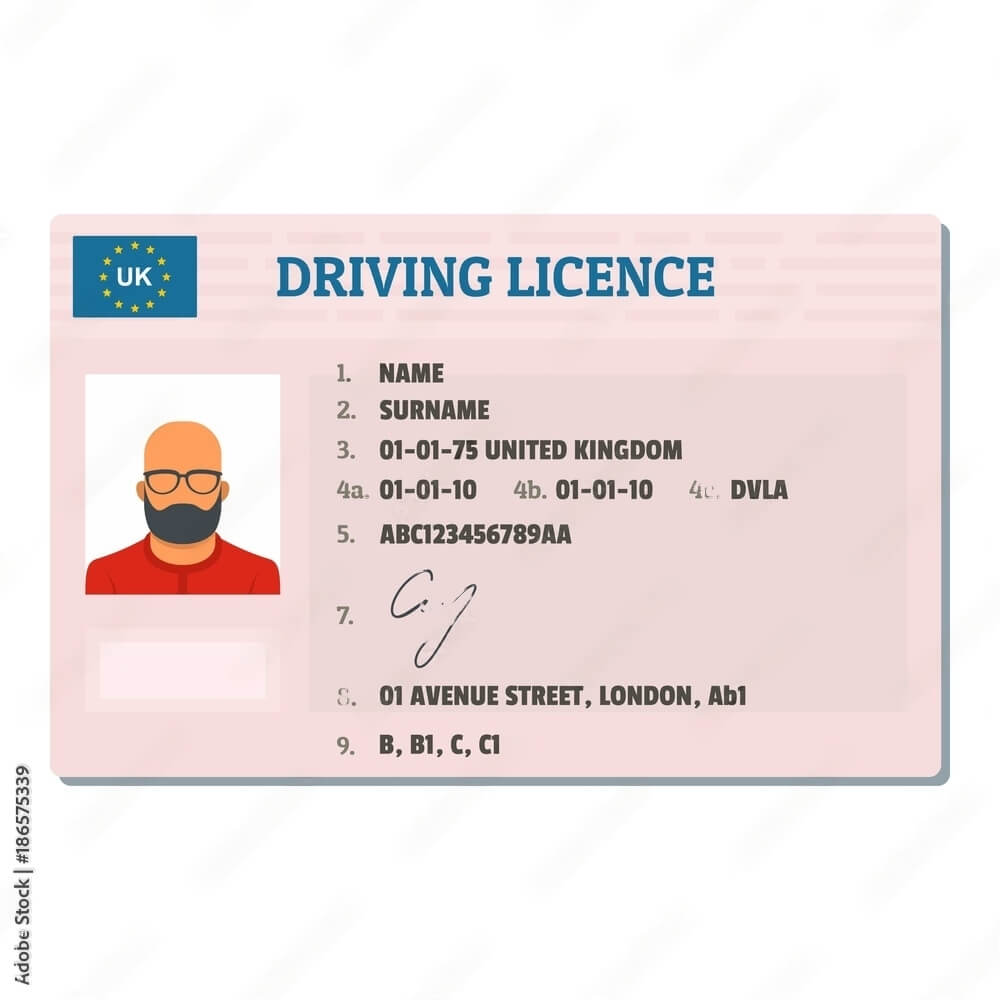Driving without a license is a serious misdemeanor offense that can lead to significant legal consequences. If you or someone you know is charged with this offense. It is important to understand the potential penalties and to take immediate action to protect your legal rights. From fines and fees to jail time and probation, the consequences of driving without a license can be severe. However, there are legal options available to minimize the impact of this charge. In this article, we will explore the potential consequences of driving without a license. Also, the legal options available to those facing this charge. Whether you are seeking legal assistance or simply looking to learn more about this topic. This guide will provide valuable insights. Also, information to help you navigate the complexities of driving without a license misdemeanor charge.
Understanding the Basics of Driving Without a License

The legal definition of driving without a license
Driving without a license refers to operating a motor vehicle on public roads or highways without a valid driver’s license. In most countries, it is illegal to drive without a license. Doing so can result in various penalties, such as fines, suspension of driving privileges, and even imprisonment in some cases.
To obtain a driver’s license, individuals are typically required to pass a written test. A driving test to demonstrate their knowledge of traffic laws and their ability to operate a motor vehicle safely. Driving without a license is considered a serious offense. Because it endangers public safety by allowing unqualified or inexperienced drivers to operate a vehicle on the roadways.
It’s important to note that driving without a license can also include driving with a suspended or revoked license. In case, a person may have had their license taken away due to previous driving offenses / other legal issues. They are not legally allowed to operate a motor vehicle. Until they have fulfilled certain requirements or had their driving privileges reinstated.
In summary, It refers to the act of operating a motor vehicle on public roads or highways without a valid driver’s license. It is illegal and can result in penalties, including fines, suspension of driving privileges, and even imprisonment.
The reasons why people drive without a license
There can be various reasons why people choose to drive without a license. Some of the common reasons are:
- Lack of proper identification: Some individuals may not have the necessary identification documents required to obtain a driver’s license. Such as a birth certificate or passport.
- Financial constraints: Obtaining a driver’s license can be expensive. Especially when factoring in the costs associated with driver education courses, testing fees, and insurance. Some people may not have the financial resources to obtain a license.
- Prior convictions: Individuals with prior traffic convictions of DUI, reckless driving, or other traffic offenses. May have their license suspended or revoked. Some may choose to drive without a license due to a lack of alternative transportation options.
- Undocumented immigrants: Undocumented immigrants may not be eligible for a driver’s license in some countries. Leading the to drive with none.
- Ignorance of the law: Some individuals may be unaware that it is illegal to drive without a license or may not understand the consequences of doing so.
It is important to note that driving without a license is illegal. Which can also have serious consequences such as fines, jail time, and increased insurance premiums. It also poses a significant risk to public safety. As unlicensed drivers may not have much experience to operate a motor vehicle safely on public roads.
The different types of driving without a license offenses
There are several types of offenses of driving without a license, including:
- Operating a motor vehicle without ever having obtained a driver’s license:
- This refers to driving without ever having obtained a valid driver’s license from the appropriate government agency.
- Operating a motor vehicle with an expired license:
- This offense occurs when an individual continues to operate a vehicle after their driver’s license has expired.
- Operating a motor vehicle with a suspended or revoked license:
- This offense occurs when an individual continues to operate a vehicle after their driver’s license has been suspended or revoked. The license of an individual may be revoked due to previous traffic violations or other legal issues.
- Operating a motor vehicle without a license in possession:
- This offense occurs when an individual is driving without having their physical driver’s license.
- Permitting an unlicensed individual to operate a motor vehicle:
- This offense occurs when an individual knowingly permits someone who does not have a valid driver’s license to operate a motor vehicle.
It is important to note that each of these offenses can result in different penalties. Ranging from fines and license suspensions to imprisonment, depending on the severity of the offense and the laws in the jurisdiction where the offense occurred. It is always significant to follow traffic laws and obtain a valid driver’s license before operating a motor vehicle on public roads or highways.
Penalties for Driving Without a License
Fines and fees

Driving without a license can result in fines and fees. Depending on the jurisdiction and the specific offense committed. Here are some examples of fines and fees that may apply:
- Fines: Fines for driving without a license can range from a few hundred dollars to several thousand dollars. Which depends on the jurisdiction and the severity of the offense. Repeat offenders may also face higher fines.
- Court costs: In addition to fines, individuals who are charged with driving without a license may also have to pay court costs. Which can include fees for court appearances, document filing, and other related expenses.
- Legal fees: If an individual chooses to hire an attorney to represent them in court, they will also have to pay legal fees, which can be significant.
- License reinstatement fees: The individual may have to pay a reinstatement fee to have their license restored.
- Increased insurance premiums: This offense may result in higher insurance premiums. As insurance companies may view the individual as a higher-risk driver.
It is important to note that fines and fees for such offenses can add up quickly. However, repeat offenders may face more severe penalties, including imprisonment. It is always best to obtain a valid driver’s license before operating a motor vehicle to avoid these penalties.
Jail time and probation

Driving without a license can result in jail time and probation. Which also depends on the severity of the offense and the laws in the jurisdiction where the offense occurred. Here are some examples of jail time and probation that may apply:
- Jail time: Individuals who are convicted of driving without a license may face jail time. This time ranges from a few days to several months, depending on the jurisdiction and the specific offense committed. Repeat offenders may face longer jail sentences.
- Probation: In some cases, individuals who are convicted of driving without a license may be sentenced to probation. During probation, the individual must comply with certain conditions. Which involves regularly reporting to a probation officer, submitting to drug or alcohol testing, and not committing any new offenses.
- Community service: In lieu of or in addition to jail time or probation, individuals who are convicted may be required to perform community service. For instance, picking up litter or participating in other community improvement projects.
It is important to note that jail time and probation are serious consequences of driving without a license. They can have long-lasting effects on an individual’s life, including difficulty finding employment or housing in the future. It is always best to obtain a valid driver’s license before operating a motor vehicle to avoid these penalties.
Vehicle impoundment
Vehicle impoundment is another consequence of driving without a license. When an individual is caught driving without a license, their vehicle may be impounded. This means that it will be towed to a designated location and held there for a period of time. Here are some examples of vehicle impoundment that may apply:
- Length of impoundment:
- The length of time that a vehicle is impounded can vary depending on the jurisdiction and the specific offense committed. In some cases, the impoundment may be for a few days, while in other cases, it may be for several months.
- Release fees:
- To have their vehicle released from impoundment, the individual will usually have to pay a release fee. That can be several hundred dollars or more, depending on the length of the impoundment and other factors.
- Storage fees:
- In addition to release fees, the individual may also have to pay storage fees for the time that their vehicle was held in the impoundment.
- Vehicle forfeiture:
- In some jurisdictions, if an individual is caught driving without a license multiple times, their vehicle may be subject to forfeiture. Meaning that it will be permanently seized by the government.
It is important to note that vehicle impoundment is a serious consequence of driving without a license. That can have significant financial implications for the individual. It is always best to obtain a valid driver’s license before operating a motor vehicle on public roads or highways to avoid these penalties.
Suspension of driving privileges
Driving without a license can lead to the suspension of driving privileges. This means that the individual’s legal right to drive on public roads and highways will be temporarily revoked. The length of the suspension may vary depending on the jurisdiction and the specific offense committed. During the suspension period, the individual may be required to attend driver’s education classes or fulfill other requirements to have their license reinstated. It’s important to note that driving with a suspended license can lead to further fines, fees, and legal consequences, so it’s best to comply with the terms of the suspension and obtain a valid driver’s license before driving again.
Community service
Community service is a form of punishment for driving without a license. It involves requiring the individual to perform unpaid work in the community, such as cleaning up parks or participating in other community improvement projects. The amount of community service required may vary depending on the jurisdiction and the specific offense committed. Community service is intended to be a way for the individual to give back to the community and make amends for their offense. Failure to complete the required community service may result in additional legal consequences, such as fines or probation.
Defenses for Driving Without a License
Validity of the license
Validity of the license refers to the legal status of a driver’s license, which determines whether it is currently valid or not. A valid driver’s license means that the individual has met the requirements set forth by their jurisdiction and is legally authorized to drive on public roads and highways. The validity of a driver’s license can be impacted by various factors, such as expiration, suspension, or revocation. It is important to ensure that one’s driver’s license is always valid before operating a motor vehicle on public roads or highways to avoid legal consequences, such as fines, fees, and penalties.
Knowledge of the license status
Knowledge of the license status refers to an individual’s awareness of the current validity of their driver’s license. It is important for drivers to regularly check the status of their license to ensure that it is valid and up-to-date. Failure to maintain a valid license can result in legal consequences, such as fines, fees, and penalties, as well as potential criminal charges if the individual is caught driving without a valid license. Checking the license status can typically be done online or by contacting the appropriate licensing agency in the individual’s jurisdiction.
Mistake of fact or law
A mistake of fact or law is a legal defense that an individual can use in court to contest a driving license charge. It occurs when the individual genuinely believed that they had a valid driver’s license, but was mistaken due to an error or misunderstanding. A mistake of law occurs when the individual did not know that their actions were illegal. However, it is important to note that ignorance of the law is generally not a valid defense. It is assumed that individuals are aware of the laws in their jurisdiction. Whether a mistake of fact or law defense is successful will depend on the specific circumstances of the case and the applicable laws in the jurisdiction.
Emergency situations
Emergency situations are circumstances in which an individual may be permitted to drive without a valid license. These situations can include medical emergencies, transportation of a sick or injured person, or other urgent situations. However, it is important to note that the specifics of what constitutes an emergency situation can vary depending on the jurisdiction, and simply being in a rush or running late does not generally qualify as an emergency. It is also important to exercise caution and safe driving practices when operating a motor vehicle in an emergency situation. While emergency situations may provide a legal defense for driving without a license, it is still best to obtain a valid license before operating a motor vehicle on public roads or highways.
How to Handle a Driving Without a License Charge
Hiring a lawyer
Hiring a lawyer can be a beneficial step for individuals facing a driving without a license charge. A lawyer can provide legal guidance, advice, and representation in court. They can help the individual understand their legal options, negotiate with the prosecution, and build a strong defense. Hiring a lawyer can also help to minimize the potential legal consequences of driving without a license charge. However, it is important to note that hiring a lawyer can be expensive, and not everyone may be able to afford one. In such cases, some jurisdictions may provide legal aid or public defenders to assist individuals who cannot afford a private attorney.
Appearing in court
Appearing in court is an important part of the legal process for individuals facing driving without a license charge. When a person is charged with driving without a license, they will typically receive a summons to appear in court on a specified date. It is significant to attend the court hearing as failure to do so can result in additional legal consequences, such as fines, fees, and even arrest warrants. During the court hearing, the individual will have the opportunity to present their case, including any legal defenses, to the judge. The judge will then make a determination on the charges, which can result in various legal consequences, such as fines, fees, probation, or even jail time. It is critical to take the court hearing seriously and to appear in court with appropriate attire and a respectful demeanor.
Negotiating a plea deal
Negotiating a plea deal can be a possible option for individuals facing driving without a license charge. A plea deal is an agreement between the prosecution and the defense. In which the defendant agrees to plead guilty or no contest to the charges in exchange for a reduced sentence or other favorable terms. In such a case, a plea deal may involve the defendant agreeing to plead guilty to a lesser charge. Which may include a traffic violation, in exchange for the prosecution dropping the driver without a license charge. Negotiating a plea deal can be complex and typically requires the assistance of an experienced attorney. However, if successful, it can help to minimize the potential legal consequences of driving without a license charge, such as fines, fees, probation, or even jail time.
Attending driving school
Attending driving school may be a requirement or an option for individuals facing driving without a license charge. In some jurisdictions, attending driving school may be a condition of probation or a plea deal, while in others, it may be an option to avoid or reduce the legal consequences of driving without a license charge. Attending driving school can provide the individual with important knowledge and skills related to safe driving practices, traffic laws, and the responsibilities of being a licensed driver. It may also help to demonstrate to the court that the individual is taking steps to address their lack of a valid driver’s license. However, it is important to note that attending driving school may come with additional costs and time commitments. It is also important to ensure that the driving school is certified and recognized by the appropriate regulatory agencies.
Complying with the court orders
Complying with court orders is a necessary step for individuals facing driving without a license charge. Court orders can include various legal consequences, such as fines, fees, probation, community service, or even jail time. It is important for the individual to comply with these orders to avoid further legal consequences, such as additional fines, fees, or even arrest warrants. Compliance may include paying fines and fees on time, completing any required community service or driving school courses, or attending probation meetings as scheduled. Failure to comply with court orders can also negatively impact the individual’s ability to obtain a valid driver’s license in the future. Therefore, it is important to take court orders seriously and to seek legal assistance if necessary.
Conclusion | Driving Without a License Misdemeanor
Driving without a license is a serious misdemeanor offense that can result in various legal consequences, such as fines, fees, probation, or even jail time. It is important for individuals facing this charge to understand the potential legal consequences and to take appropriate steps to address the situation. This may include hiring a qualified attorney, appearing in court, negotiating a plea deal, attending driving school, and complying with court orders. If you or someone you know is facing driving without a license charge, it is essential to take immediate action to protect your legal rights and minimize the potential consequences. Don’t hesitate to seek legal assistance and take the necessary steps to address the situation.
FAQ’s
A: The penalty for driving without a license misdemeanor can vary depending on the specific circumstances of the case, including the severity of the offense, the reason for driving without a license, and the individual’s prior criminal record. Possible penalties may include fines, community service, and even jail time.
A: While it is possible to defend yourself against a charge of driving without a license misdemeanor, it is generally not recommended. This offense carries serious legal and financial consequences, and an experienced criminal defense attorney can help you navigate the legal system and potentially achieve a more favorable outcome.
A: In most cases, individuals convicted of driving without a license misdemeanor will be able to obtain a driver’s license after a certain period of time has passed and they have completed any necessary requirements, such as paying fines or completing community service.
